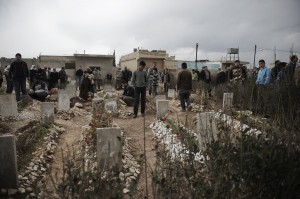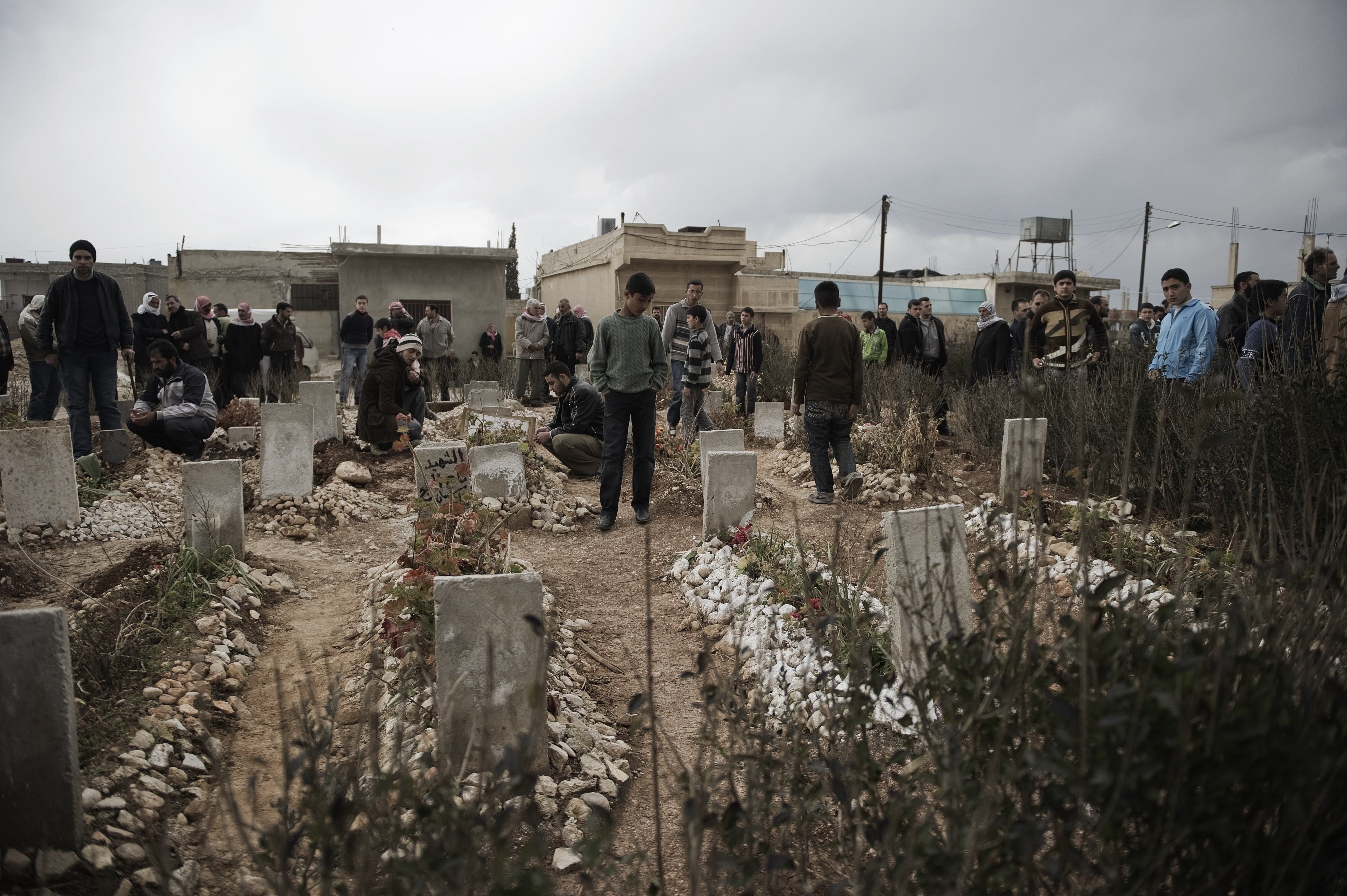
(AFP Photo)
(AFP) – The Syrian regime appears to be using local militias known as Popular Committees to carry out sometimes sectarian mass-killings in Syria, a UN inquiry team said Monday.
“In a disturbing and dangerous trend, mass killings allegedly perpetrated by Popular Committees have at times taken on sectarian overtones,” the UN commission of inquiry, led by Brazilian Paulo Pinheiro, said in an update to its latest report on the situation in Syria, without giving concrete examples of the killings.
The groups, it said, were frequently described as Shabbiha militias and were reportedly being set up to protect their neighbourhoods against anti-government armed groups and criminal gangs.
But the groups, which according to defectors “mirror the ethnic, religious and class composition of the neighbourhoods they protect”, had evolved to reinforce government forces, the report found, adding that their presence had been documented across Syria.
“Recently, the regime has begun to integrate the Popular Committees along with other sympathising groups in a new paramilitary force called the ‘National Defence Forces,’ institutionalising the existing militias and organising them into and operational structure,” it said.
The commission, which Monday presented the findings of its report published last month to the UN Human Rights Council in Geneva, said that the past two months had seen a rapid deterioration of the situation in Syria.
“The increasing militarisation of the conflict has had devastating consequences for civilians, spreading immense suffering,” Pinheiro told the Council, lamenting among other things the clear targeting of medical facilities and personnel.
Syrian ambassador Faysal Khabbaz Hamoni meanwhile lambasted the report, which he said was full of errors and based on “testimonials of which the reliability and truthfulness we question.”
The commission — set up in 2011 at the behest of the UN Human Rights Council — has been unable to gain access to Syria since Damascus has ignored its request for entry.
Instead, it has interviewed over 1,500 refugees and exiles as a basis for its reports.
It has previously detailed what it believes are war crimes and crimes against humanity committed by Syrian government forces and their allies, and, to a lesser extent, by opposition fighters.
It is set to submit a confidential list of names of suspected perpetrators to the UN human rights office, and has repeatedly urged the deadlocked UN Security Council to refer the cases to the International Criminal Court.
Switzerland on Monday meanwhile presented a petition signed by 63 countries calling for the Security Council to refer the Syrian violence to the ICC.
Syria has been embroiled in conflict since Basher al-Assad’s regime launched a brutal crackdown on protests that erupted in March 2011. The United Nations says at least 70,000 people have been killed, while over one million Syrians have sought refuge in neighbouring countries.
At least 2.5 million Syrians have meanwhile been internally displaced, while more than four million people in the country are in dire need of aid, according to UN figures.

